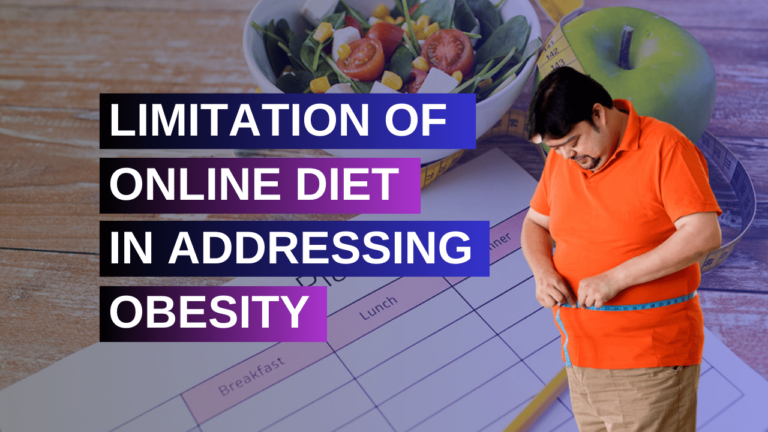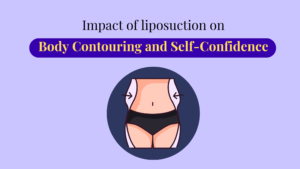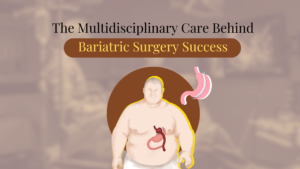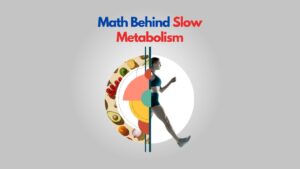
Vidhi Dave
Bariatric Dietician & Content Writer

Limitation of Online Diet in Addressing Obesity

Do you think your shirt is too tight on you?
This is the sign that may lead to obesity. Obesity is an alarming medical issue that occurs when a person carries excess weight or body fat that might affect their health. The issue of obesity goes beyond appearance. It is a long-term medical condition that can result in diabetes, hypertension, heart disease, gallstones, and other chronic disorders. It is also linked to cardiovascular diseases that are linked to obesity, such as heart disease.
Causes of Obesity
1) Genetics
One of the reasons for obesity can be genetics. The amount and distribution of body fat that you store may be influenced by the genes that you inherited from your parents. Compared to children of lean parents, children of obese parents are considerably more likely to grow up to be obese. Some individuals seem to be genetically prone to weight growth and obesity.
2) Lifestyle Choices
Unhealthy food choices: Weight gain is facilitated by diets high in calories, deficient in fruits and vegetables, heavy on fast food, high in calorie drinks, and with large portions size.
One can consume a lot of calories—especially those from alcohol—without feeling satisfied. Weight gain may result from consuming additional high-calorie drinks such sugary soft drinks.
Inactivity: If you are living a sedentary lifestyle, it’s simple to consume more calories each day than you burn through exercise and other everyday activities. Inactivity is staring at a phone, tablet, or computer screen. A significant risk factor for weight gain is the amount of hours spent in front of a screen.
3) Pregnancy
Pregnancy can cause weight gain if not taken proper precaution and it can lead to obesity. Postpartum weight loss can be a challenging for womens
4) Lack of Sleep
The hormones leptin and ghrelin control appetite, and when you don’t get enough sleep, the production of these hormones is changed in a way that increases sensations of hunger. Increased appetite typically results in more calories consumed and weight gain.
5) Stress: Stress can lead to Obesity by increasing Cortisol hormone that can increase appetite and causes white adipose tissue to distribute around the abdominal region.
Online Diets Have Several Major Drawbacks
1) Lack of personalization:
Online diets are based on the concept of one size fits all solution. Obesity is a complex condition based on various factors like lifestyle modification, genetics, addiction, etc and varies from person to person. Therefore, for long-term success, a customised approach to diet and lifestyle changes is essential. It’s unfortunately difficult to attain the best results for everyone because online diets sometimes ignore personal variances.
2) Lack of healthcare professionals advice:
Dietitians, nutritionists, and doctors are examples of skilled healthcare professionals whose knowledge and direction are frequently necessary for effective obesity management. Online diets, on the other hand, don’t have access to their direct oversight or tailored guidance. This lack of control by a professional may result in health concerns, poor dietary intake, and unhealthy habits.
3) Trending diets- Keto diet/ FAD diet
The Internet is full of trending diets like keto diet or fad diet that promises rapid weight loss within weeks/ months. Unfortunately, a lot of these diets lack strong scientific support and may eventually prove unsafe. Those looking to reduce weight are sometimes drawn to these popular trending diets without taking into account how they may affect their long-term health. Users find it challenging to distinguish between evidence-based tactics and simple promotional tricks on the internet because of the absence of supervision and transparency.
4) Workout Recommendation:
Some of the online diets majorly focus on dietary modification and neglect the importance of physical activities. Other Online diets Fitness programs could suggest exercises that aren’t suitable for everyone due to mobility difficulties or individual preferences.
5) Morbid Obesity (BMI > 40):
Individuals with obesity, defined as a BMI greater than 40. No diets or exercise can help people lose weight, thus bariatric surgery is the only line of treatment for them.Online diets frequently fail to provide information concerning morbid obesity. Following proper dietary guidelines as instructed by the dietitian after surgery will help you lose weight and reach your target body weight.
Online diets may be convenient and help people lose weight initially, but they have significant drawbacks when it comes to effectively combating obesity. They are less effective at addressing this complicated health issue because they lack personalisation, expert advice, and sustainable methods. It is crucial for persons trying to fight obesity to get professional assistance, use evidence-based strategies, and promote physical exercise. Always keep in mind that permanent results need a holistic strategy that goes beyond the restrictions of internet diets.







